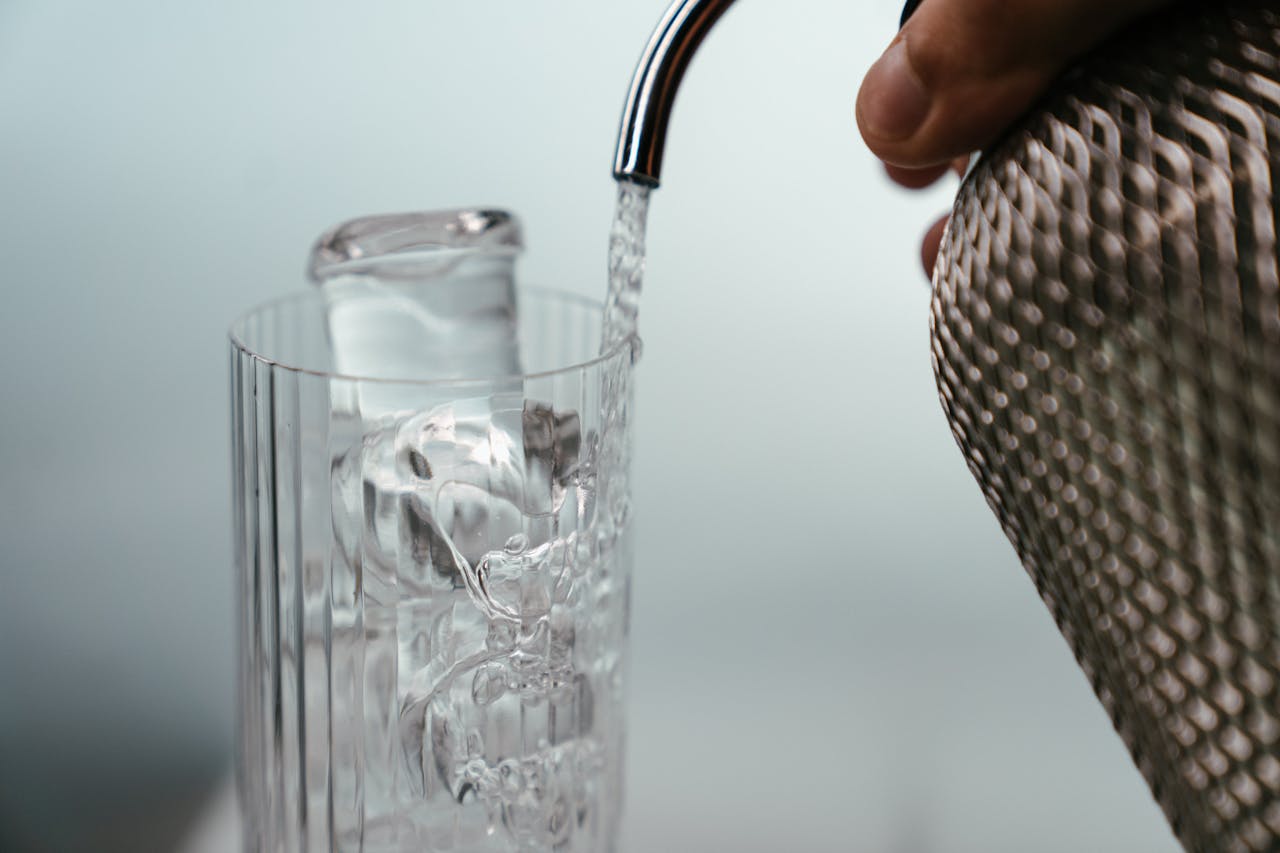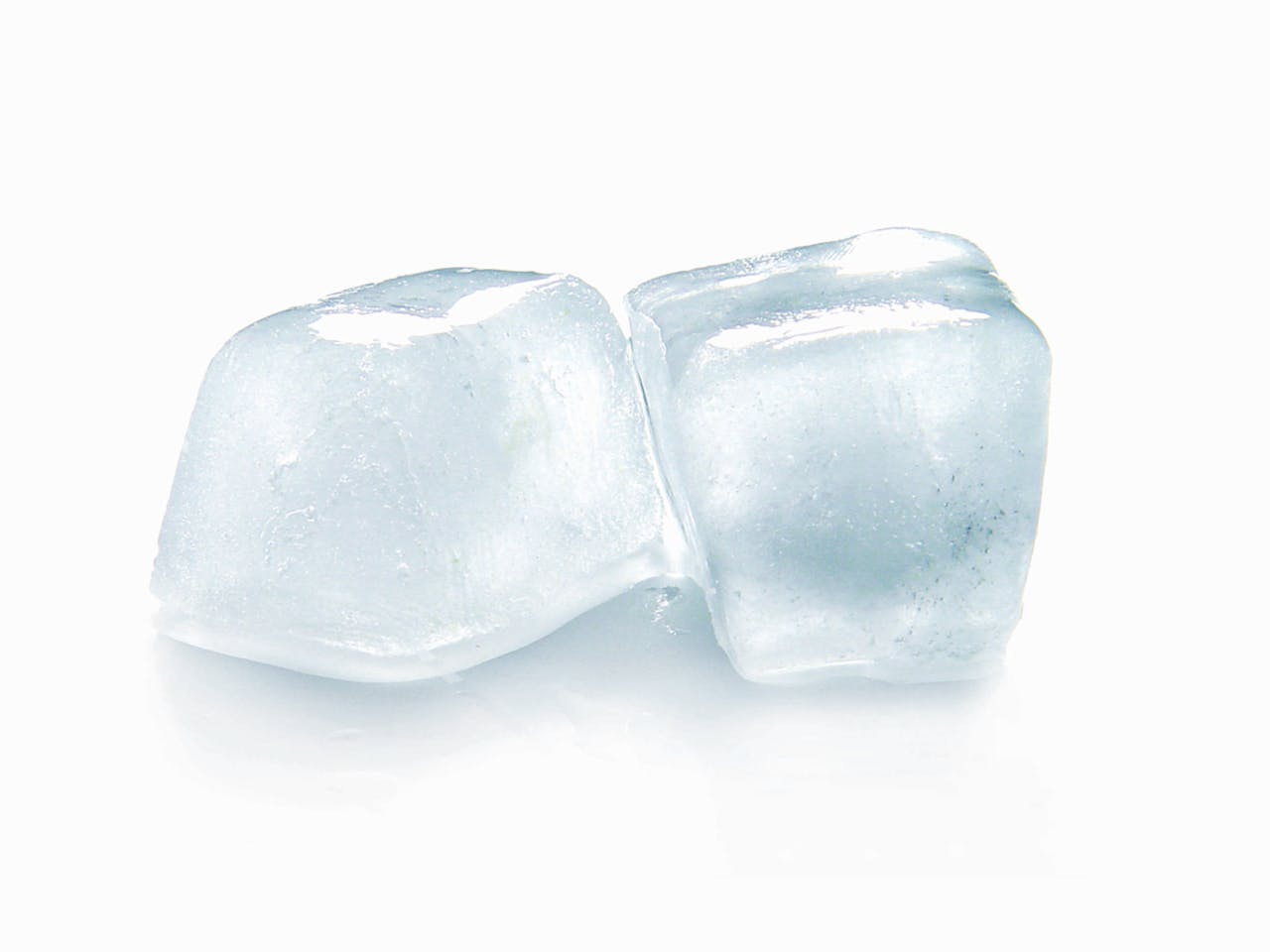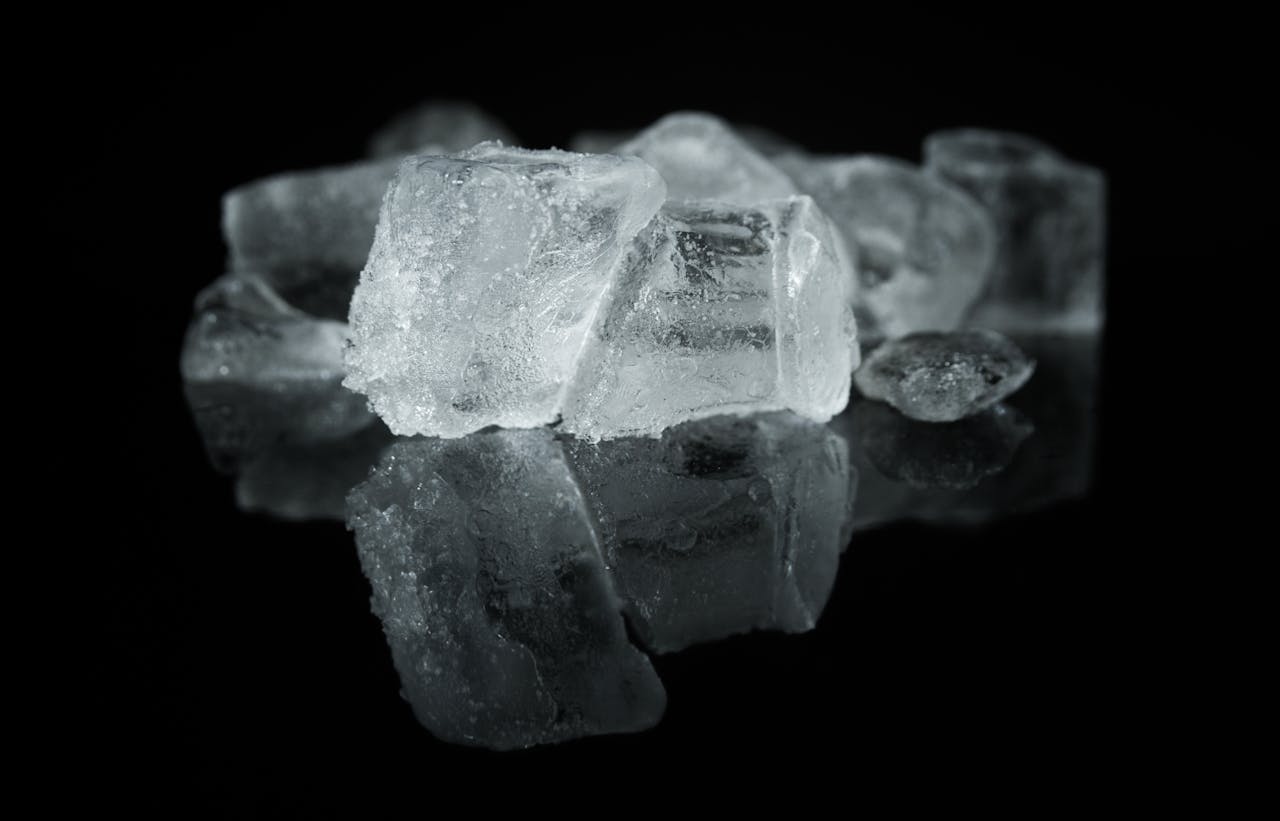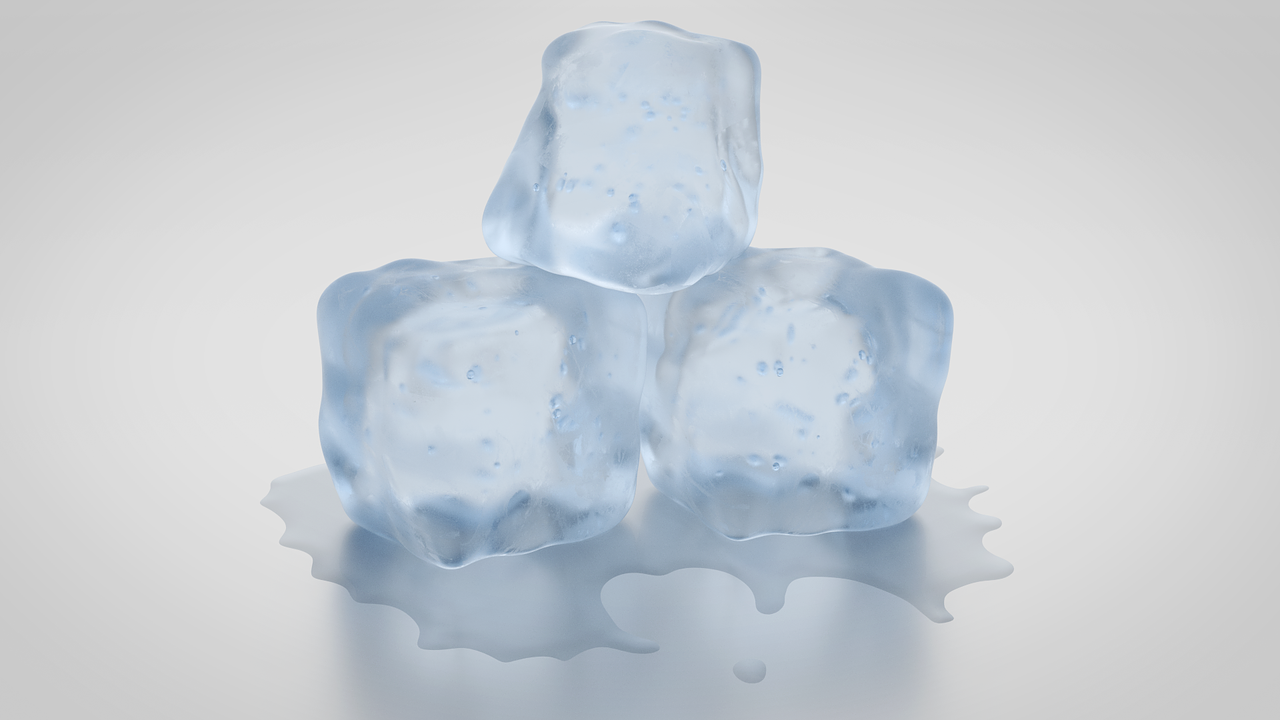Did you know that regular cleaning and maintenance of dishwashers and washing machines is essential for their longevity? The average dishwasher, for example, can wash over 12,000 dishes in its lifetime. Regular cleaning is crucial to ensure your dishwashers reach their full potential. Proper maintenance includes washing machine and following a thorough cleaning process. By mastering essential tips and tricks for appliance maintenance, you can extend the lifespan of your efficient appliances and save both time and money on energy savings. Proper care is crucial for maximizing energy efficiency and getting the most out of your appliances. Imagine never having to scrub a pan or rewash a load of dishes due to poor cleaning performance with your dishwashers and oven. Keep your appliances running smoothly with regular appliance maintenance. With these proven techniques, you’ll become an expert in Whirlpool dishwasher maintenance, keeping your appliances operating at peak level for years to come. Follow these tips to ensure a thorough cleaning process.
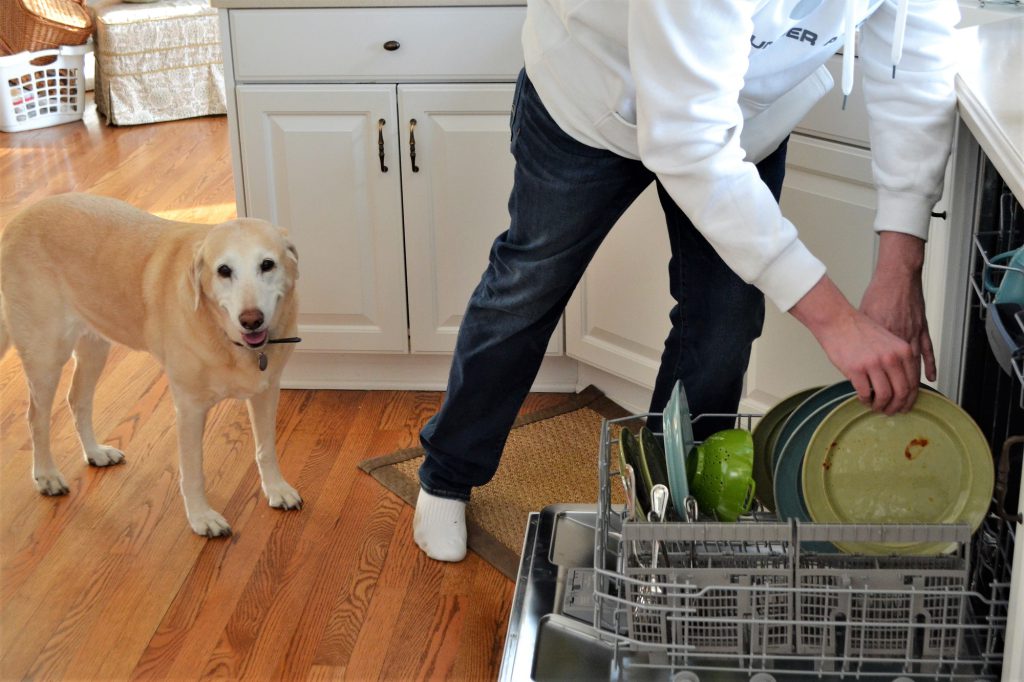
Efficient Dishwasher Usage for Enhanced Longevity
Correct Loading Techniques
Understanding the importance of appliance maintenance, specifically when it comes to loading your Whirlpool dishwasher correctly, is crucial. Follow these maintenance tips to ensure optimal performance of your appliances. Improper loading of appliances can lead to damage and result in subpar cleaning. Follow these maintenance tips to ensure energy efficiency and power. For efficient dishwashing and to maximize energy efficiency, ensure that appliances like Whirlpool dishwashers are used. Follow these maintenance tips: make sure dishes are not stacked on top of each other, and there’s enough space between them. This allows water and detergent to reach all surfaces of Whirlpool appliances, ensuring a thorough clean without causing any strain on the energy efficiency. Here are some tips.
Arranging appliances strategically, such as Whirlpool machines, can prevent them from moving around during the wash cycle, reducing the risk of breakage or damage. Follow these tips to keep your appliances secure and in good condition. By following these simple loading techniques, you can maintain your Whirlpool dishwasher’s longevity while also achieving spotless dishes after every cycle. Whirlpool appliances are designed to provide optimal cleaning performance, and proper loading is essential for maximizing their efficiency.
Selecting the Right Detergent and Rinse Aid
Choosing the right detergent and rinse aid is vital for effective dishwashing and preserving your Whirlpool dishwasher’s efficiency. Whirlpool appliances are designed to perform optimally when using the recommended detergent and rinse aid. Opt for Whirlpool detergents specifically formulated for use in dishwashers as they are designed to produce fewer suds compared to regular dish soap. These detergents are perfect for Whirlpool appliances. Using excessive amounts of regular dish soap may lead to oversudsing, potentially damaging your appliances over time.
Similarly, incorporating quality appliances like a rinse aid helps prevent water spots and residue buildup on glassware while promoting faster drying. This not only ensures sparkling clean dishes but also contributes to maintaining your dishwasher’s functionality in the long run. Additionally, regularly cleaning your appliances will help extend their lifespan and keep them running efficiently.
Water and Energy Conservation Strategies
In addition to proper loading techniques and choosing suitable detergents, conserving water and energy during dishwasher usage is essential for both cost savings and reducing the environmental impact of appliances. When dealing with hard water issues that could affect cleaning efficiency for appliances, adding white vinegar or baking soda along with hot water can help combat mineral deposits within the machine.
Moreover, running full loads of appliances instead of partial ones maximizes water usage efficiency while reducing energy consumption per item washed. Opting for an energy-efficient setting on your appliances further contributes towards minimizing overall energy usage without compromising cleanliness.

Essential Practices for Dishwasher Upkeep
Regular Cleaning
To maintain the appearance of your dishwasher and prevent dirt buildup on your appliances, it’s crucial to regularly clean the exterior. Wipe down the outside of the appliances, such as the dishwasher, with a damp cloth and a mild soapy solution. This will help keep your appliances looking new and free from grime that can accumulate over time.
Ensuring that appliances are sparkling clean after each use is vital for proper maintenance. Remove any food debris or residue from the bottom of your appliances to prevent clogs and odors. Use warm, soapy water to wipe down all interior surfaces of your appliances, including the racks and utensil holders.
Seals Maintenance
Don’t overlook cleaning the door gasket and seals of your appliances as part of your regular maintenance routine. These appliance components are essential for preventing leaks during operation by maintaining a tight seal when closed. Use warm, soapy water to carefully clean around appliances, ensuring there is no residual food or mineral buildup that could compromise their effectiveness.
It’s important to note that an accumulation of debris in these areas may lead to potential issues with appliances such as leaks during cycles which can cause damage not only to your dishwasher but also surrounding cabinetry if left unaddressed.
Maximizing Dishwasher Efficiency and Longevity
Water Temperature Settings
Adjusting the water temperature settings of appliances is crucial for optimizing cleaning performance while reducing energy consumption. Hot water helps dissolve detergent efficiently, leading to better cleaning results for appliances. However, excessively high temperatures can damage appliances, dishes, and increase energy usage. To prevent mineral buildup from hard water without compromising cleanliness, it’s recommended to set your home’s water heater to a maximum of 120°F (49°C). This applies to all appliances.
Using the “energy-saving” or “eco” mode on your appliances, such as the dishwasher, can further enhance energy efficiency by lowering the water temperature during certain parts of the cycle. This not only saves power but also contributes to reduced operating costs over time.
Proper Loading Techniques
Avoiding overloading your dishwasher is essential as it can lead to poor cleaning results and potential damage. When you overload the dishwasher, items may block the spray arms or prevent detergent from reaching all surfaces effectively. This leads to inefficient cleaning and may even necessitate rerunning cycles for satisfactory results.
To ensure optimal performance, always load dishes properly according to their size and shape. For example, place larger items like pots and pans on the bottom rack where they won’t obstruct water flow, while positioning smaller items such as glasses and cups securely on the top rack.
Selecting Appropriate Cycles
Using the appropriate cycle for each load is vital in ensuring efficient operation and prolonging the life of your dishwasher. Most modern dishwashers offer a variety of cycles tailored for different types of loads – from heavy-duty options for heavily soiled cookware to quick washes for lightly used items.
The Role of Regular Maintenance in Appliance Health
Identifying Potential Issues Early On
Regular appliance maintenance is crucial for identifying potential issues early on, preventing costly repairs down the line. By inspecting your dishwasher regularly, you can catch minor problems before they escalate into major malfunctions. For instance, if you notice a small leak during routine maintenance, addressing it promptly can prevent water damage to other components and avoid more extensive repairs.
Performing regular maintenance also allows you to check for any signs of wear and tear on essential parts such as the door seal or spray arms. Identifying these issues early helps in replacing worn-out parts before they cause significant damage to the appliance.
Extending Lifespan and Avoiding Breakdowns
Routine maintenance tasks play a pivotal role in extending the lifespan of your dishwasher and avoiding premature breakdowns. Simple activities like cleaning the filters, checking for clogs in spray arms, and ensuring proper drainage can significantly contribute to the overall health of your appliance.
By keeping up with regular maintenance, you decrease the likelihood of sudden breakdowns that disrupt your daily routine. Imagine coming home after a long day only to find out that your dishwasher has stopped working due to neglect! Consistent upkeep ensures that such scenarios are minimized or completely avoided.
Peak Performance and Clean Dishes Every Time
Consistent upkeep ensures that your dishwasher operates at peak performance, providing you with clean dishes every time. When filters are clogged or spray arms are blocked by food particles, it directly impacts the performance of your appliance. Regular maintenance involves thorough cleaning which prevents debris buildup from affecting how well your dishwasher cleans dishes.
Moreover, by maintaining optimal conditions within the appliance through regular checks and cleanings, you ensure that it functions efficiently without any hiccups during its cycle. This means no more rewashing dishes due to inadequate cleaning caused by neglected maintenance!
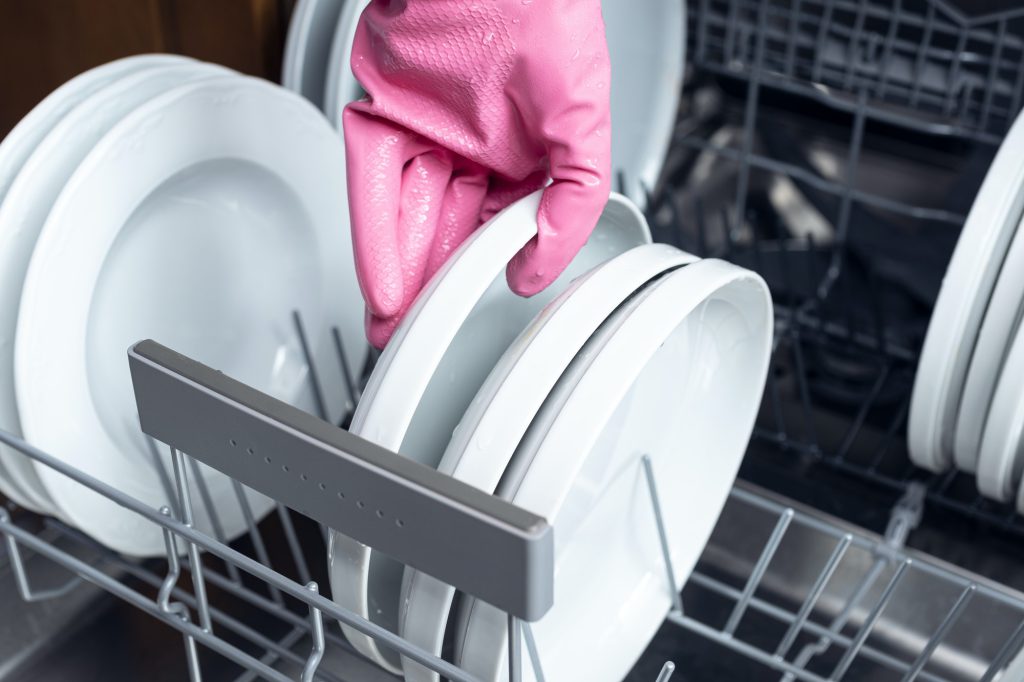
Routine Maintenance Tasks for Dishwasher Durability
Clean Spray Arms
To maintain your dishwasher’s longevity, it’s crucial to clean the spray arms regularly. Over time, food particles and mineral deposits can clog the spray arm nozzles, hindering proper water distribution during cycles. To prevent this, remove the spray arms and soak them in a solution of vinegar and water to dissolve any buildup. Use a small brush or toothpick to dislodge any stubborn debris from the nozzles.
Regularly cleaning the spray arms ensures that your dishwasher functions at its best, providing thorough cleaning for your dishes without strain or inefficiency.
Inspect Drain Filter
Another essential maintenance task is to inspect and clean the dishwasher’s drain filter. The drain filter prevents food particles from recirculating onto clean dishes and helps maintain efficient drainage during cycles. Remove the lower rack to access the filter assembly at the bottom of the appliance.
Carefully detach and clean out any debris trapped in the filter using a soft brush or cloth. This simple yet vital step prevents blockages that could lead to poor drainage, foul odors, or even damage to internal components over time.
Check Dishwasher Racks
The dishwasher racks are subjected to constant use and can develop signs of wear and tear over time. Regularly inspect these racks for any signs of damage such as rust spots, chipped coating, or broken tines. Addressing these issues promptly can prevent further deterioration that may compromise their functionality.
If you notice damaged areas on your dishwasher racks, consider repairing them with specially formulated rack repair paint or replace them if necessary. By doing so, you ensure smooth loading/unloading of dishes while preventing potential scratches on delicate items due to exposed metal parts.
Optimizing Dishwasher Settings for Extended Life
Water Softener Adjustments
Hard water can lead to mineral buildup in your dishwasher, affecting its cleaning performance and lifespan. By adjusting the water softener settings, you can mitigate this issue. Lowering the water hardness setting on your dishwasher will reduce the mineral content in the water used during wash cycles. This simple adjustment helps prevent limescale and mineral deposits from accumulating inside the appliance, ultimately enhancing its longevity.
Furthermore, reducing mineral buildup also ensures that your dishes come out cleaner after each cycle. With fewer minerals present in the water, soap scum is minimized, leading to more effective cleaning results. In essence, by tweaking this setting based on your local water quality, you’re not only extending the life of your dishwasher but also improving its overall performance.
Experimenting with Wash Cycles
Every load of dishes doesn’t necessarily require a heavy-duty wash cycle. Experimenting with different wash cycle options allows you to find an optimal balance between cleanliness and energy efficiency. For lightly soiled loads or delicate items, selecting a shorter or eco-friendly cycle can be just as effective while consuming less energy and putting less strain on the appliance over time.
Moreover, being mindful of which items are being washed can help determine which cycle is most suitable for each load. For example, heavily soiled pots and pans might benefit from a more intense wash compared to glassware or lightly soiled plates. By customizing each load’s settings accordingly, you’re not only maximizing cleaning efficiency but also minimizing wear and tear on your dishwasher components.
Leveraging Delay Start Features
Many modern dishwashers come equipped with a delay start feature, allowing users to schedule when they want their appliance to begin a wash cycle. Taking advantage of this feature enables you to capitalize on off-peak electricity hours when rates are typically lower—reducing energy costs while easing strain on both your dishwasher and household electrical grid during peak usage times.
Using delay start functionality means that dirty dishes don’t have to sit inside the machine until it’s time for them to be cleaned—helping prevent odors from developing due to prolonged exposure before washing begins.
The Significance of a Clean Dishwasher Filter
Importance of Regular Cleaning
Regularly cleaning the dishwasher filter is crucial to prevent food particles from clogging the system and affecting performance. Over time, food debris can accumulate in the filter, leading to blockages that hinder water flow and disrupt the cleaning process. This can result in poorly cleaned dishes and potentially damage your dishwasher.
A clean filter ensures proper water circulation within the appliance, which is essential for achieving optimal cleaning results. When the filter is free from debris, water can freely move through it, reaching all areas of the dishwasher effectively. As a result, you’ll notice improved cleanliness of your dishes after each cycle. By maintaining a clean filter, you contribute to increased longevity for your dishwasher as it operates at its best capacity.
Consequences of Neglecting Filter Maintenance
Neglecting to clean the filter door can lead to several undesirable outcomes for your dishwasher’s performance and longevity. Firstly, accumulated food particles within the filter may cause unpleasant odors emanating from your dishwasher during operation or when not in use. These odors are often indicative of trapped food residues decaying inside the appliance due to inadequate filtration.
Moreover, failing to address this maintenance task could ultimately lead to potential damage to your dishwasher over time. A clogged or dirty filter forces other components such as pumps and spray arms in your machine to work harder than necessary since they have less access to water due to blockages caused by uncleaned filters.
Inspecting and Caring for Dishwasher Components
Checking Door Hinges
Regularly inspect the door hinges of your dishwasher to ensure they are not worn or misaligned. If you notice any signs of wear or misalignment, this can significantly affect the operation of your dishwasher. It might result in leaks, poor cleaning performance, or even damage to the door itself.
It’s crucial to address any issues with the door hinges promptly to prevent potential water damage and maintain the longevity of your appliance. By keeping an eye on these components, you can catch problems early and avoid more extensive repairs down the line.
Inspecting Spray Arm Bearings
The spray arm bearings play a vital role in ensuring that your dishes are thoroughly cleaned during each cycle. Over time, these bearings may become worn or damaged, leading to inefficient rotation of the spray arms. When inspecting them, look for smooth rotation without any resistance.
If you notice any issues with the spray arm bearings, it’s essential to replace them promptly to maintain optimal cleaning performance. Failing to address worn or damaged bearings can result in leftover food particles and debris on your dishes after each cycle.
Ensuring Proper Heating Element Functionality
The heating element is a critical component that contributes to effective dishwashing by maintaining consistent hot water temperatures during cycles. To ensure its proper functionality, check for consistent hot water throughout each wash cycle as indicated in your dishwasher manual.
A malfunctioning heating element can lead to inadequate cleaning due to lower water temperatures. It may cause mineral deposits buildup inside your dishwasher over time if not addressed promptly.
Integrating Dishwasher Maintenance into Daily Routines
Scraping Off Excess Food
Before loading dishes into the dishwasher, it’s essential to develop a habit of scraping off excess food. This simple step prevents clogs and improves cleaning efficiency. By doing this, you ensure that your dishwasher’s cleaning cycle isn’t compromised by large food particles.
Regularly scraping off excess food before loading the dishes can significantly reduce the likelihood of buildup in the dishwasher system. This proactive approach not only enhances the longevity of your appliance but also contributes to its optimal performance over time.
Wiping Down Interior Walls
Another crucial aspect of dishwasher maintenance is wiping down the interior walls regularly. This helps in removing any residue or stains that may have accumulated during multiple cycles. A damp cloth or sponge can be used for this task, ensuring that no stubborn stains are left behind.
Wiping down the interior walls ensures that there are no lingering odors caused by trapped food particles or residue from previous washes. It also contributes to maintaining a clean and hygienic kitchen environment, as it prevents any potential bacterial growth within the appliance.
Checking for Leaks and Unusual Noises
Making it a routine to check for leaks or unusual noises during each use is vital for effective dishwasher maintenance. Any signs of leakage should be addressed promptly to prevent water damage to your kitchen floor or cabinets. Similarly, addressing unusual noises early on can prevent further damage to internal components.
Regular checks help in identifying any issues with the dishwasher’s features such as its drainage system, ensuring that it continues to function optimally without causing any unexpected problems mid-cycle.
Conclusion: Mastering Dishwasher Longevity
Regular Maintenance
Maintaining your dishwasher is vital for ensuring its longevity. By incorporating regular maintenance into your routine, you can prevent costly repairs and extend the lifespan of your appliance. Simple tasks like cleaning the filter, checking for clogs, and inspecting the spray arms can make a significant difference in how well your dishwasher functions.
Regularly adding salt to the water softening system in your dishwasher can also help prevent limescale buildup, ensuring that your machine continues to run efficiently. Moreover, cleaning the door gasket and wiping down the interior of the dishwasher after each use can prevent the accumulation of grime and debris, contributing to its overall longevity.
Takeaways
By implementing these maintenance practices, you take control of your dishwasher’s lifespan. Not only will you save money on repairs and replacement appliances, but you’ll also enjoy clean dishes hassle-free. Imagine never having to deal with a malfunctioning dishwasher or constantly handwashing dishes due to a poorly maintained machine. With these proven tips and techniques, you can ensure that your dishwasher lasts for years to come.
In conclusion, mastering dishwasher longevity is achievable through regular maintenance. By taking control of your appliance’s lifespan, you can save money on repairs and replacements while enjoying consistently clean dishes without any hassle.
Unlock Effortless Dishwashing Days: Contact Zuta Appliance Repair for Expert Dishwasher Care!
Transform your dishwashing from a chore to a breeze with Zuta Appliance Repair! If you encounter any challenges or need professional assistance, our team of expert technicians at Zuta Appliance Repair is ready to leap into action. We’re dedicated to ensuring your dishwasher operates at its best, providing you with efficient, hassle-free laundry experiences. Don’t let appliance issues throw a wrench in your routine – reach out to Zuta Appliance Repair for top-notch service and solutions. Contact us today for a consultation and take the first step towards smoother, more efficient laundry days!
Disclaimer
The materials available on this website are for informational and entertainment purposes only and not to provide legal advice. You should contact your attorney to obtain advice concerning any particular issue or problem. You should not act or refrain from acting based on any content included in this site without seeking legal or other professional advice. The information presented on this website may not reflect the most current legal developments. No action should be taken in reliance on the information contained on this website and we disclaim all liability concerning actions taken or not taken based on any or all of the contents of this site to the fullest extent permitted by law.
Frequently Asked Questions
How often should I clean my dishwasher filter?
You should clean your dishwasher filter at least once a month to ensure optimal performance. A clogged filter can lead to poor cleaning and potential damage to the appliance.
What are some routine maintenance tasks for dishwashers?
Routine maintenance tasks include checking for leaks, inspecting and cleaning the spray arms, wiping down the door gasket, and running a cleaning cycle with vinegar or specialized dishwasher cleaner.
Is it necessary to integrate dishwasher maintenance into daily routines?
Yes, integrating small maintenance tasks into your daily routines can significantly extend the lifespan of your dishwasher. Simple habits like scraping off excess food before loading dishes can prevent buildup and strain on the machine.
How do I optimize my dishwasher settings for extended life?
Optimizing settings involves using appropriate wash cycles based on load size, avoiding overloading the machine, and ensuring proper water temperature. Following these guidelines reduces wear and tear on components.
Why is regular maintenance important for appliance health?
Regular maintenance helps prevent costly repairs by addressing minor issues early. It also ensures efficient operation, reduces energy consumption, and extends the overall lifespan of your appliances.

